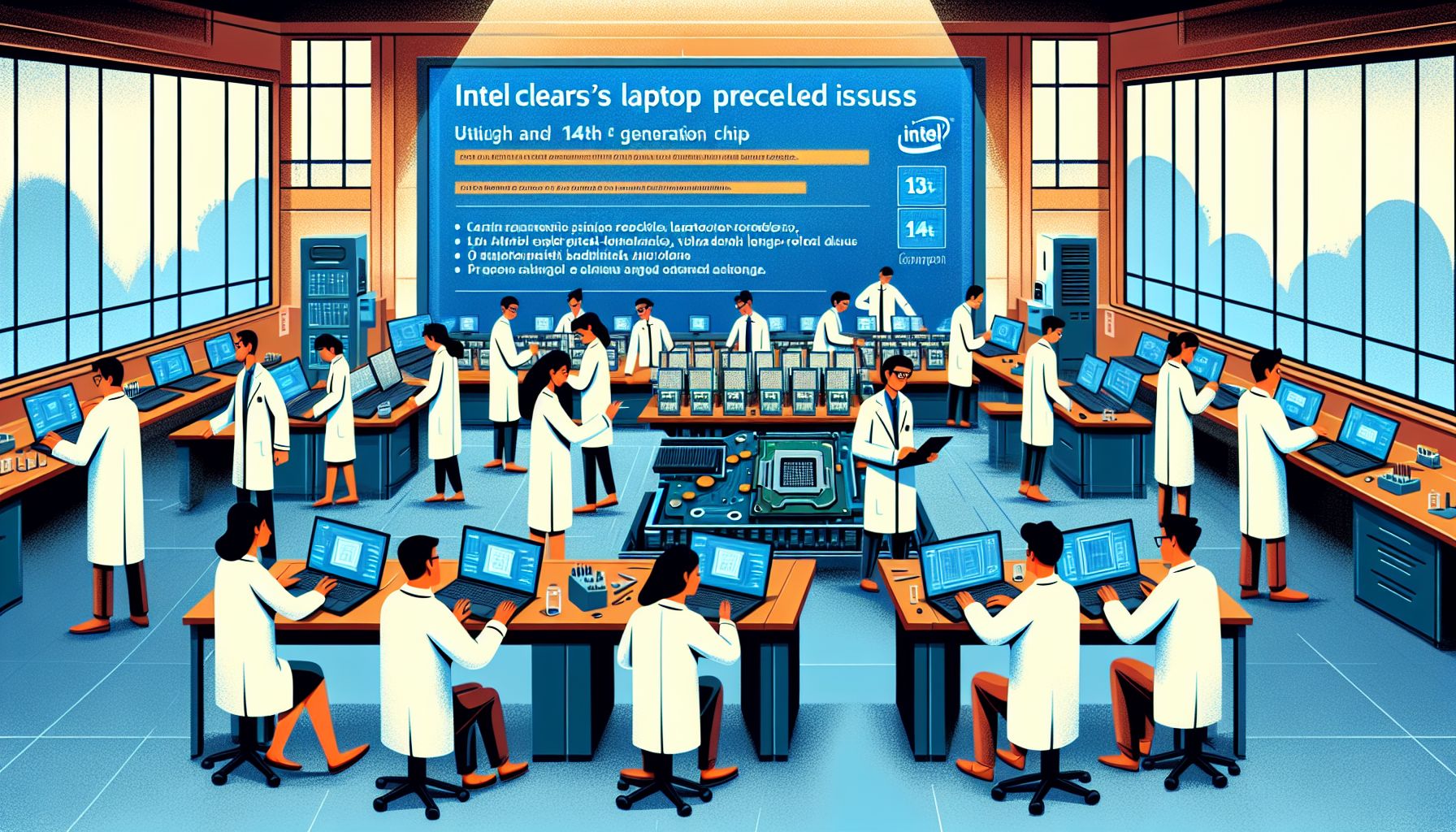Intel Clears Laptop Chips from Voltage-Related Issues

Santa Clara, Monday, 2 September 2024.
Intel confirms 13th and 14th generation laptop processors are unaffected by the Vmin Shift Instability issue plaguing some desktop CPUs. Most desktop chips remain unaffected, with Intel extending warranties for impacted processors and advising users to update their BIOS.
Understanding the Vmin Shift Instability Issue
The Vmin Shift Instability issue has been causing significant concern among users of Intel’s 13th and 14th generation processors, particularly those in desktop systems. This problem, which involves unexpected voltage behavior, has led to unstable applications, system crashes, and in some cases, irreparable damage to the processors. However, Intel has reassured users that its laptop chips are not affected by this issue, providing much-needed relief for those relying on their portable devices for critical tasks.
Intel’s Assurance and Recommendations
Intel spokesperson Thomas Hannaford confirmed that the 13th and 14th generation mobile chips are not impacted by the Vmin Shift Instability issue. This means that users of laptops equipped with these processors can continue to operate without the fear of instability. Intel advises all users to ensure their systems are running the latest BIOS updates, which can be checked via Intel’s Compatibility Tool or through motherboard manufacturers. This proactive step is essential for maintaining system stability and performance.
Addressing Desktop Processor Concerns
While the issue predominantly affects desktop processors, Intel has taken steps to mitigate the impact. The company has extended warranties for affected Intel Core 13th and 14th generation desktop processors, including models such as the i5-13600K, i7-13700K, and i9-13900K. Users experiencing instability or crashes are encouraged to update their BIOS to the latest version, which incorporates critical microcode updates aimed at stabilizing these processors. Intel has also collaborated with motherboard manufacturers like ASUS to release BIOS updates that address these issues.
Future-Proofing with Arrow Lake and Lunar Lake
Looking ahead, Intel has assured customers that its upcoming Arrow Lake and Lunar Lake architectures will not be affected by the Vmin Shift Instability issue. These new generations of processors, expected to launch in the autumn of 2024, have been designed with enhanced stability features to prevent similar problems. This forward-thinking approach aims to restore user confidence and ensure the reliability of Intel’s future product families.
Conclusion and User Action Steps
In conclusion, while the Vmin Shift Instability issue has posed challenges for Intel’s desktop processors, the company’s prompt response and ongoing support efforts have provided a clear path forward for affected users. Laptop users can rest assured that their devices are not impacted, while desktop users are encouraged to update their BIOS and take advantage of extended warranties. Intel’s proactive measures and future-proofing strategies highlight its commitment to delivering reliable and high-performance computing solutions.

